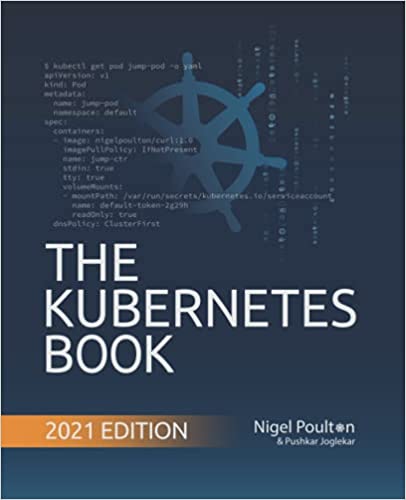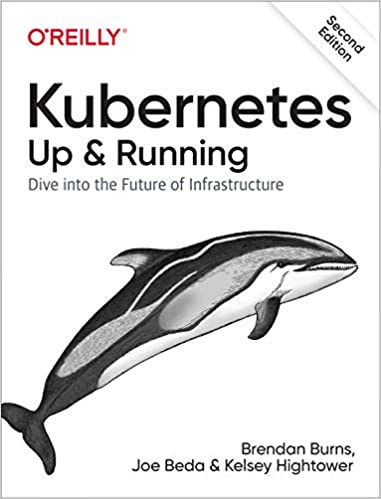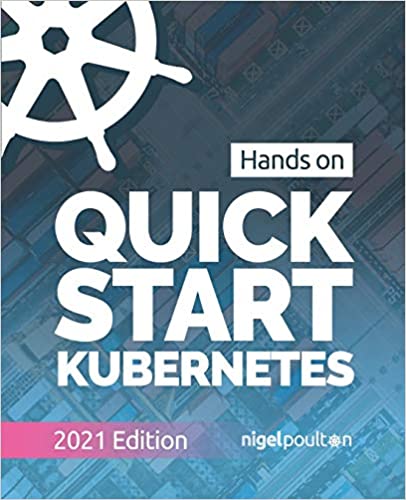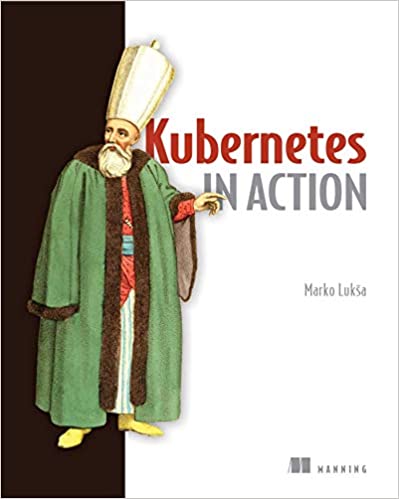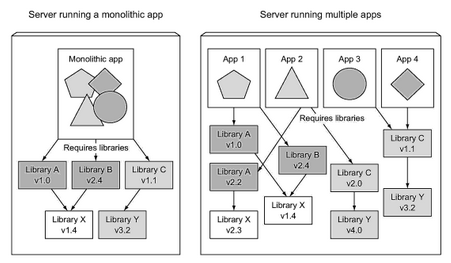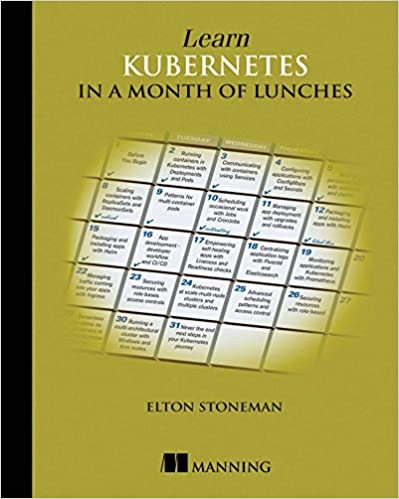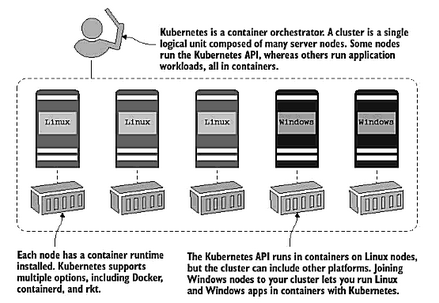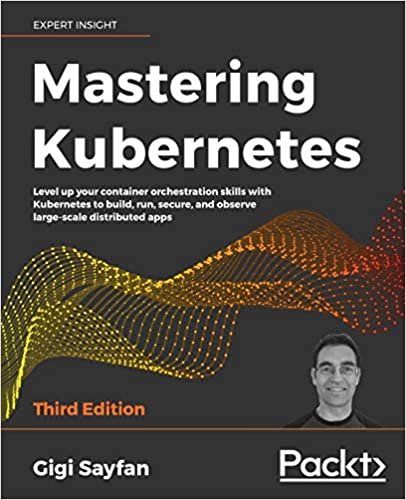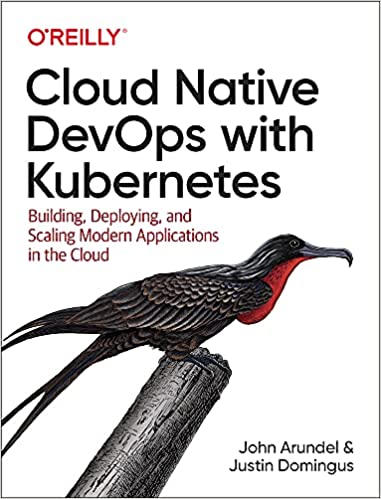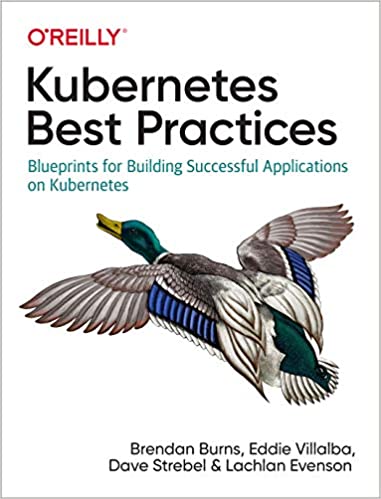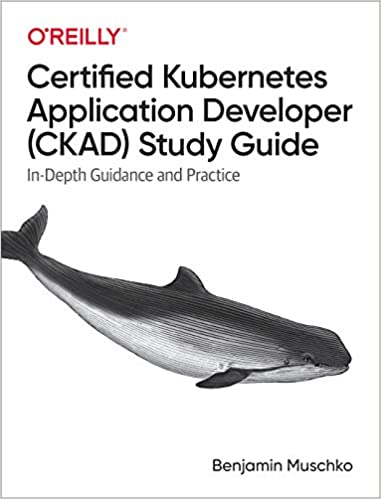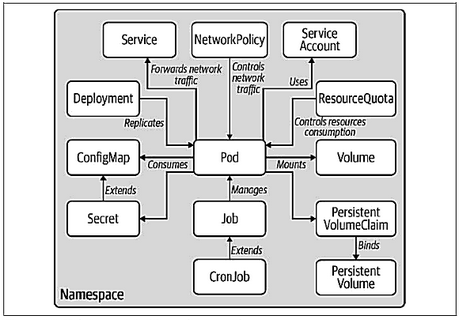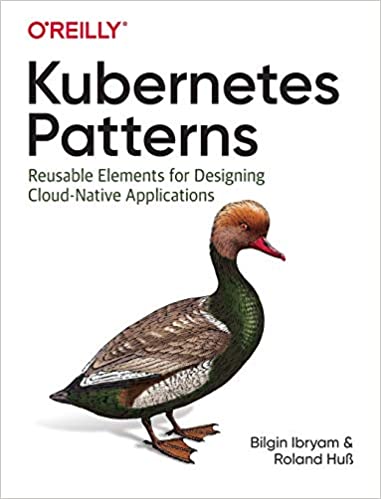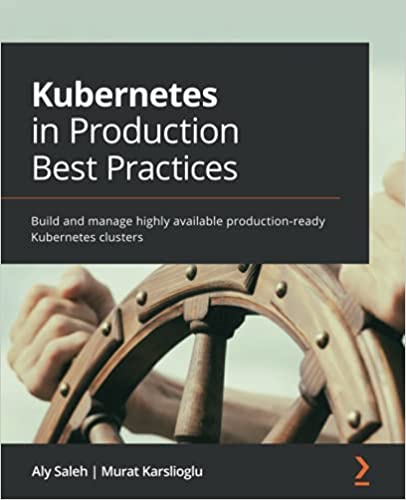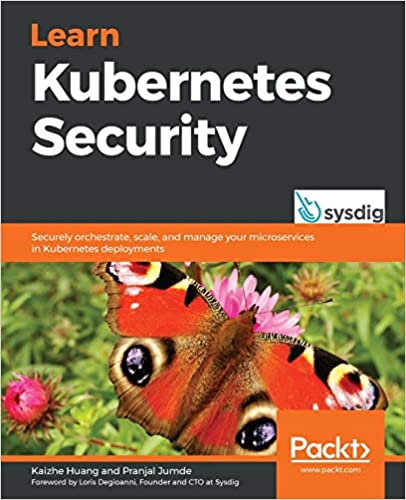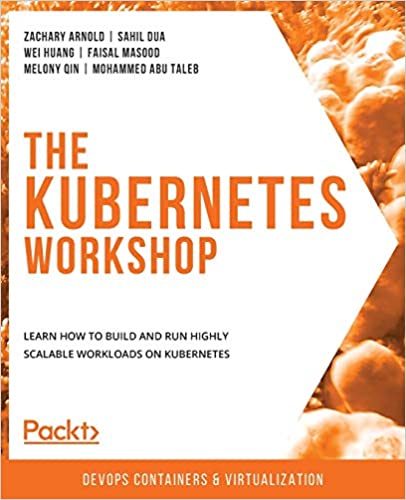Table of Contents
Today we’re looking at the best Kubernetes books of this year.
🧠 Did you know? According to VMware, Kubernetes is one of the top 10 most popular open-source repos on GitHub.
What is Kubernetes?
Kubernetes is an open-source platform that manages containerized workloads. It keeps track of containers that are deployed to the cloud.
But it can also be used for web hosting.
In addition, Kubernetes allows you to deploy and manage containerized applications at scale. You can also:
✅ deploy to your preferred cloud platform
✅ migrate to other cloud platforms
✅ migrate on-premises datacenters
And beyond.
What is the Certified Kubernetes Application Developer (CKAD)?
The Certified Kubernetes Application Developer (CKAD) is an exam. It certifies that you can properly use Kubernetes to design, build and deploy cloud-native applications.
This proctored test is performance-based and is composed of problems that you’ll solve in the command line.
📚 And if you want to learn more about the CKAD, check out book #9 on our list. 📚
This post contains affiliate links. I may receive compensation if you buy something. Read my disclosure for more details.
☸️ TLDR: Best Kubernetes Books ☸️
🔥 Best Overall 🔥
The Kubernetes Book
💥 Best for Newbies 💥
Kubernetes: Up and Running
💸 Best Value 💸
Quick Start Kubernetes
Best Kubernetes Books
Here are the 13 best Kubernetes books of this year.
1. The Kubernetes Book
↘️ Ideal for: Kubernetes newbies
↘️ Topics covered: architecture, deployment, scaling
The Kubernetes Book by Nigel Poulton is updated every year. So it keeps up with the latest trends and versions of Kubernetes.
➡️ The Kubernetes Book is one of the best Kubernetes books to learn the fundamentals.
First you’ll explore the building blocks of Kubernetes such as:
✅ Kubernetes architecture
✅ how the Kubernetes API works
✅ how to build Kubernetes
Then you’ll learn about key terminology such as cloud-native and microservices.
What Kubernetes developers are saying about The Kubernetes Book:
…Loads of information is provided in clearly communicated, bite-sized chunks. Excellent examples/analogies throughout…
– JoeyA, Kubernetes Developer
🚉 Keep the momentum going with the video course Kubernetes for Developers: Core Concepts on Pluralsight.
2. Kubernetes: Up and Running
↘️ Ideal for: Kubernetes newbies
↘️ Topics covered: deployment, specialized objects, examples
Kubernetes: Up & Running published by O’Reilly shows developers the efficiency and reliability of Kubernetes.
It was written by Brendon Burns, Joe Beda and Kelsey Hightower, who have all used Kubernetes during their time at Google.
So while The Kubernetes Book is updated yearly, Kubernetes: Up & Running has the benefit of being written by developers who’ve actually worked on Kubernetes.
➡️ Kubernetes: Up and Running is one of the best Kubernetes books for beginners.
First you’ll start by creating a cluster to see how Kubernetes functions. Then you’ll explore:
✅ deploying an application using Kubernetes
✅ specialized objects like Daemon Sets and ConfigMaps
✅ the lifecycle of an application
Finally, you’ll explore examples of developing Kubernetes apps.
By the end of Kubernetes: Up & Running, you’ll likely be able to automate scalable distributed systems.
What Kubernetes developers are saying about Kubernetes: Up & Running:
A very well written and in-depth introduction to using Kubernetes.
– Corey, Kubernetes Developer
3. Quick Start Kubernetes
↘️ Ideal for: Kubernetes newbies
↘️ Topics covered: Kubernetes building blocks
Quick Start Kubernetes is written by Nigel Poulton, the same author that wrote The Kubernetes Book. But Quick Start Kubernetes is an abbreviated introduction to Kubernetes rather than a full-fledged Kubernetes immersion.
➡️ Quick Start Kubernetes is one of the best Kubernetes books for developers on a budget.
First you’ll explore the absolute basics of Kubernetes such as what Kubernetes is and the fundamentals of its architecture.
Then, you’ll get hands-on while:
✅ building a cluster
✅ containerizing an app
✅ breaking the app and watching it heal
✅ scaling your application
And much more.
By the end of Quick Start Kubernetes, you’ll likely be able to perform basic Kubernetes tasks.
What Kubernetes developers are saying about Quick Start Kubernetes:
This is a good, quick intro to Kubernetes…
– Michael Porter, Kubernetes Developer
🤓 Get a basic introduction to containers with the video Specialization Introduction to Containers w/ Docker, Kubernetes & OpenShift on Coursera.
4. Kubernetes in Action
↘️ Ideal for: intermediate developers new to container orchestration systems
↘️ Topics covered: deploying, securing, updating
Kubernetes in Action shows you how to use Kubernetes to deploy containerized distributed applications.
➡️ Kubernetes in Action is one of the best Kubernetes books for intermediate developers.
First you’ll begin with an overview of Kubernetes and its relationship to Docker.
Then you’ll build your first Kubernetes cluster. Throughout the book, you’ll add features to your application while exploring monitoring, tuning and scaling.
Finally, you’ll learn about:
✅ deploying containers across a cluster
✅ securing clusters
✅ updating applications
And beyond.
📈 Level up your Kubernetes skills with the interactive course A Practical Guide to Kubernetes on Educative.io.
5. Learn Kubernetes in a Month of Lunches
↘️ Ideal for: developers familiar with Docker and containerization
↘️ Topics covered: deploying applications, lifecycle, scaling
Learn Kubernetes in a Month of Lunches contains 22 hands-on lessons that you can fit into a lunch break.
It’s similar to Kubernetes: Up & Running, but aims to teach you within a given time frame.
➡️ Learn Kubernetes in a Month of Lunches is one of the best Kubernetes books for developers experienced with Docker and containerization.
First you’ll start with Kubernetes basics. Second, you’ll learn how to model, deploy and manage applications in production.
In the process, you’ll explore how Kubernetes works with various languages and frameworks.
In addition, you’ll discover:
✅ the Kubernetes app lifecycle
✅ self-healing scalable apps
✅ deploying apps on Kubernetes clusters
Finally, you’ll practice with legacy code, serverless functions and new applications.
6. Mastering Kubernetes
↘️ Ideal for: intermediate Kubernetes developers
↘️ Topics covered: serverless computing, service meshes
Mastering Kubernetes goes beyond the fundamentals and deployment of Kubernetes. It takes you on a journey into serverless computing, service meshes and beyond.
➡️ Mastering Kubernetes is one of the best Kubernetes books for experienced Kubernetes developers who want to level up.
Diving into complex concepts, the latest tools and best practices, you’ll master designing and deploying clusters on a variety of cloud platforms.
First, you’ll learn about:
✅ running stateful microservices
✅ network configuration
✅ custom resource development
And much more.
By the end of this book, you’ll progress from an intermediate to advanced Kubernetes developer.
🧑🎓 Not quite ready for Mastering Kubernetes? Check out the intermediate video course Kubernetes for Developers by the Linux Foundation.
7. Cloud Native DevOps with Kubernetes
↘️ Ideal for: Kubernetes newbies part of an organization
↘️ Topics covered: Kubernetes fundamentals, building applications
No prior experience in Kubernetes is necessary.
Cloud Native DevOps with Kubernetes published by O’Reilly is similar to Kubernetes: Up & Running.
But with Cloud Native DevOps with Kubernetes you’ll focus on building one cloud native application and its infrastructure.
Plus you’ll learn about DevOps.
➡️ Cloud Native DevOps with Kubernetes is one of the best Kubernetes books for hands-on developers.
First you’ll learn about the Kubernetes ecosystem. Then with step-by-step instructions, you’ll build:
✅ a cloud native application
✅ infrastructure
✅ a development environment
✅ a continuous deployment pipeline
You’ll do all this and more while running your own clusters, applying industry best practices and discovering the best tools for your applications.
Finally, you’ll learn DevOps principles that will make your team fast and effective.
8. Kubernetes Best Practices: Blueprints for Building Successful Applications on Kubernetes
↘️ Ideal for: experienced Kubernetes developers
↘️ Topics covered: Kubernetes best practices
Kubernetes Best Practices is another banger published by O’Reilly.
Like Mastering Kubernetes, Kubernetes Best Practices is for experienced Kubernetes developers.
But rather than opening up a new world of concepts, you’ll learn to improve on the skills you already have.
➡️ Kubernetes Best Practices is one of the best Kubernetes books for learning the right way to apply Kubernetes concepts.
Geared towards experienced Kubernetes developers, you’ll learn Kubernetes best practices for:
✅ setting up and developing applications
✅ patterns for securing your systems, monitoring and managing upgrades
✅ integrating services and legacy applications
And beyond.
By the end of this book, you’ll likely be able to build the best apps of your Kubernetes career.
9. Certified Kubernetes Application Developer (CKAD) Study Guide
↘️ Ideal for: experienced Kubernetes developers
↘️ Topics covered: CKAD
The CKAD Study Guide is the only book on our list that covers the CKAD certification by the Cloud Native Computing Foundation.
This is a performance-based exam that requires a thorough understanding of Kubernetes.
➡️ Certified Kubernetes Application Developer (CKAD) Study Guide is one of the best Kubernetes books for preparing for CKAD.
With this guide, you’ll find a complete walkthrough of everything you can expect with the CKAD exam.
While preparing for this exam, you’ll learn about:
✅ when and how to apply Kubernetes
✅ the kubectl command-line tool
✅ your competency as a Kubernetes developer
✅ questions to expect on the CKAD exam
Finally, you’ll find tips and tricks to pass the CKAD exam.
10. Kubernetes Patterns: Reusable Elements for Designing Cloud-Native Applications
↘️ Ideal for: experienced Kubernetes developers
↘️ Topics covered: Kubernetes patterns
Kubernetes Patterns published by O’Reilly is a bit different than any other book on our list. Here you’ll find nothing but patterns to help you maximize your usage of Kubernetes.
➡️ Kubernetes Patterns is one of the best Kubernetes books for learning reusable patterns.
You’ll learn about five cloud-native pattern categories:
✅ Foundational
✅ Behavioral
✅ Structural
✅ Configuration
✅ Advanced
Each pattern contains a detailed description with a possible solution using Kubernetes. In addition, you’ll find plenty of code examples.
11. Kubernetes in Production Best Practices
↘️ Ideal for: experienced Kubernetes developers, cloud infrastructure experts, DevOps engineers
↘️ Topics covered: infrastructure architectures, best practices, tools
Kubernetes in Production Best Practices is similar to Kubernetes Best Practices, but it’s meant for professionals.
➡️ Kubernetes in Production Best Practices is one of the best Kubernetes books for professional Kubernetes developers.
You’ll learn how to:
✅ design and configure Kubernetes production clusters
✅ explore infrastructure architectures for deploying Kubernetes
✅ apply industry tools
✅ deploy observability stacks
And much more.
By the end of this book, you’ll likely be a professional Kubernetes powerhouse. 💪
12. Learn Kubernetes Security
↘️ Ideal for: experienced Kubernetes developers, cloud administrators, DevOps engineers
↘️ Topics covered: securing Kubernetes clusters and cloud-based deployments
Learn Kubernetes Security aims to help you orchestrate and scale your Kubernetes deployments securely.
➡️ Learn Kubernetes Security is one of the best Kubernetes books for managing your Kubernetes deployments.
First you’ll learn the basics of Kubernetes architecture and networking. Then you’ll explore:
✅ threat modeling and security domains
✅ security configurations
✅ deploying open source tools to protect your deployments
✅ mitigating Kubernetes hacks
By the end of this book, you’ll likely have a solid understanding of container security. And have the ability to minimize cybersecurity threats.
13. The Kubernetes Workshop
↘️ Ideal for: developers familiar with Docker and containerization
↘️ Topics covered: Kubernetes fundamentals
The Kubernetes Workshop shows you how to build and run scalable workloads on Kubernetes.
➡️ The Kubernetes Workshop is one of the best Kubernetes books for developers already familiar with Docker and containerization.
First you’ll explore the Kubernetes environment. Then, you’ll learn how containers are managed.
Next, you’ll learn:
✅ how to build, deploy and maintain cloud-native apps
✅ about using Kubernetes primitives
✅ how to share or store data in different containers
✅ about building and deploying an admission controller
And much, much more.
By the end of this book, you’ll likely be able to use Kubernetes to manage and scale containerized applications.
Best Kubernetes Books: Conclusion
Now let’s take a quick look at the top Kubernetes books on our list.
Today we looked at the best Kubernetes books including:
🔥 Best Overall 🔥
The Kubernetes Book
💥 Best for Newbies 💥
Kubernetes: Up and Running
💸 Best Value 💸
Quick Start Kubernetes
So whether you want a quick start into Kubernetes or a deep immersion, we think these are the best Kubernetes books out there.
Kubernetes developers are also reading:
- Best Kubernetes Course This Year [Our Top 5 Picks: Learn Kubernetes ASAP]
- DevOps for Developers: Learn Docker, Kubernetes & More [Educative.io Course Review]
- 11 Best SRE Books This Year [Learn Site Reliability Engineering ASAP]
- What is a DevOps Engineer? A Comprehensive Introduction
What are the best Kubernetes books?
Some of the best Kubernetes books include our overall favorite The Kubernetes Book by Nigel Poulton. For newbies, we really liked Kubernetes: Up and Running. And for best value, we chose Quick Start Kubernetes. To learn about these Kubernetes books and more, check out today’s post where we look at the best Kubernetes books of this year.
What is Kubernetes?
Kubernetes is an open-source platform that manages containerized workloads. It keeps track of containers that are deployed to the cloud. But it can also be used for web hosting. Kubernetes allows you to deploy and manage containerized applications at scale. You can also deploy to your preferred cloud platform, migrate to other cloud platforms and beyond. To learn more about Kubernetes, check out today’s article where we look at the best Kubernetes books.
What is the Certified Kubernetes Application Developer (CKAD)?
The Certified Kubernetes Application Developer (CKAD) is an exam. It certifies that you can properly use Kubernetes to design, build and deploy cloud-native applications. This proctored test is performance-based and is composed of problems that you’ll solve in the command line. You can learn more about CKAD in the book Certified Kubernetes Application Developer (CKAD) Study Guide published by O’Reilly in today’s post where we look at this and other Kubernetes books.
Is The Kubernetes Book worth it?
Yes, we think The Kubernetes Book is worth it. The Kubernetes Book by Nigel Poulton aims to help you become proficient at Kubernetes. The Kubernetes Book is one of the best Kubernetes books to learn the fundamentals. You’ll explore the building blocks of Kubernetes such as Kubernetes architecture and how to build Kubernetes. To learn more about The Kubernetes Book, be sure to check out today’s post where we look at this and other Kubernetes books.
Is Kubernetes: Up and Running worth it?
Yes, we think Kubernetes: Up and Running is worth it. Published by O’Reilly, this book shows developers the efficiency and reliability of Kubernetes. It was written by Brendon Burns, Joe Beda and Kelsey Hightower, who have all used Kubernetes during their time at Google. Kubernetes: Up and Running is one of the best Kubernetes books for beginners. To learn more about the features of this book, check out today’s post where we look at this and other Kubernetes books.
![13 best kubernetes books this year [learn kubernetes asap]](https://realtoughcandy.com/wp-content/uploads/2021/11/cover-kubernetes-books-1024x576.jpg)
